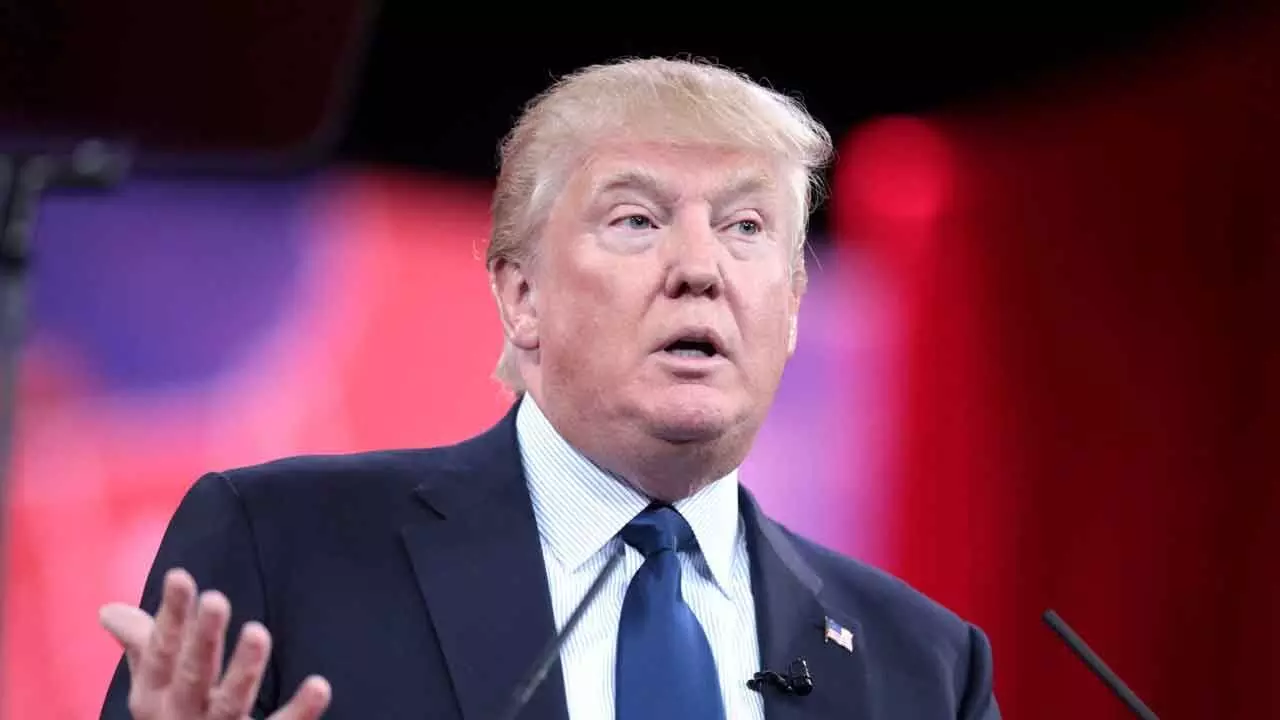Trump's Gaza Gambit: A 60-Day Ceasefire on the Table—Will Hamas Bite?
Explore the latest on the Israel-Gaza conflict as Donald Trump announces a 60-day ceasefire deal agreed to by Israel, urging Hamas to accept. Learn about the high-stakes diplomacy, humanitarian crisis, and escalating regional tensions
Trump's Gaza Gambit: A 60-Day Ceasefire on the Table—Will Hamas Bite?

Washington D.C.—In a dramatic push for peace, President Donald Trump announced Tuesday that Israel has agreed to the terms of a 60-day ceasefire in Gaza, urging Hamas to accept the deal before conditions for the militant group worsen. The revelation comes as Trump prepares to host Israeli Prime Minister Benjamin Netanyahu at the White House on Monday, signaling intensified U.S. efforts to halt the devastating conflict and secure the release of hostages.
Trump, who has been actively pressing both sides for a resolution, shared the significant development on his platform. "My Representatives had a long and productive meeting with the Israelis today on Gaza. Israel has agreed to the necessary conditions to finalize the 60 Day CEASEFIRE, during which time we will work with all parties to end the War," he wrote, indicating that Qatar and Egypt would present the final proposal to Hamas.
His message to Hamas was stark: "I hope, for the good of the Middle East, that Hamas takes this Deal, because it will not get better — IT WILL ONLY GET WORSE."
This isn't the first time Trump has issued such an ultimatum. He has a history of dramatic appeals to pressure Hamas into longer pauses in fighting, aiming for more hostage releases and increased humanitarian aid to Gaza's beleaguered civilian population. However, the efficacy of this "best and final offer" remains to be seen, as Hamas has historically been skeptical of such pronouncements.
High-Stakes Diplomacy in Washington
The announcement coincided with Israeli Minister for Strategic Affairs Ron Dermer's visit to Washington for crucial talks. Dermer's agenda included discussions on a potential Gaza ceasefire, Iran, and other pressing regional matters. He was reportedly slated to meet with Vice President JD Vance, Secretary of State Marco Rubio, and special envoy Steve Witkoff, highlighting the high-level engagement dedicated to these complex issues.
Earlier in the day, Trump reiterated his optimism for a ceasefire agreement, telling reporters at a new immigration detention facility in Florida that Netanyahu was "ready to come to an agreement." When asked about putting pressure on the Israeli Prime Minister, Trump simply stated, "He wants to. I think we’ll have a deal next week."
Despite the renewed diplomatic push, a major hurdle in negotiations between Israel and Hamas has consistently been the fundamental disagreement over whether a ceasefire should lead to a permanent end to the war. Approximately 50 hostages are still held captive in Gaza, with less than half believed to be alive, adding immense pressure to the ongoing talks.
Humanitarian Crisis Deepens Amidst Violence
The latest ceasefire overture comes against a backdrop of escalating humanitarian concerns in Gaza. Over 150 international charities and aid organizations, including Oxfam, Save the Children, and Amnesty International, jointly called for the dismantling of a controversial Israeli- and U.S.-backed aid distribution system. Their plea follows reports of chaos and deadly violence at aid sites, including the recent killings of at least 10 Palestinians seeking food.
Simultaneously, Israeli airstrikes claimed at least 37 lives in Khan Younis, southern Gaza, according to Nasser Hospital. "Tents, tents they are hitting with two missiles?" lamented Um Seif Abu Leda, whose son was among the victims, as mourners laid flowers on body bags.
Regional Tensions Flare
Adding another layer of complexity, Israel's defense minister, Israel Katz, issued a stern warning earlier Tuesday following a missile launch that the military attributed to Yemen. Sirens blared across parts of Israel, signaling the attack and the launch of two projectiles from Gaza, all of which were intercepted by Israeli defense systems.
This missile launch marks the first such attack by Iran-backed Houthi rebels since the end of the 12-day conflict initiated by Israel with Iran. Katz ominously suggested that Yemen could face a similar fate to Tehran. However, Nasruddin Amer, deputy head of the Houthi media office, defiantly vowed on social media that Yemen would not "stop its support for Gaza … unless the aggression stops and the siege on Gaza is lifted."
Amidst these developments, Netanyahu, speaking to his Cabinet, remained tight-lipped about his upcoming Washington visit, only confirming discussions around a trade deal. However, Iran is also anticipated to be a key topic, especially after Trump recently brokered a ceasefire between Israel and Tehran.

